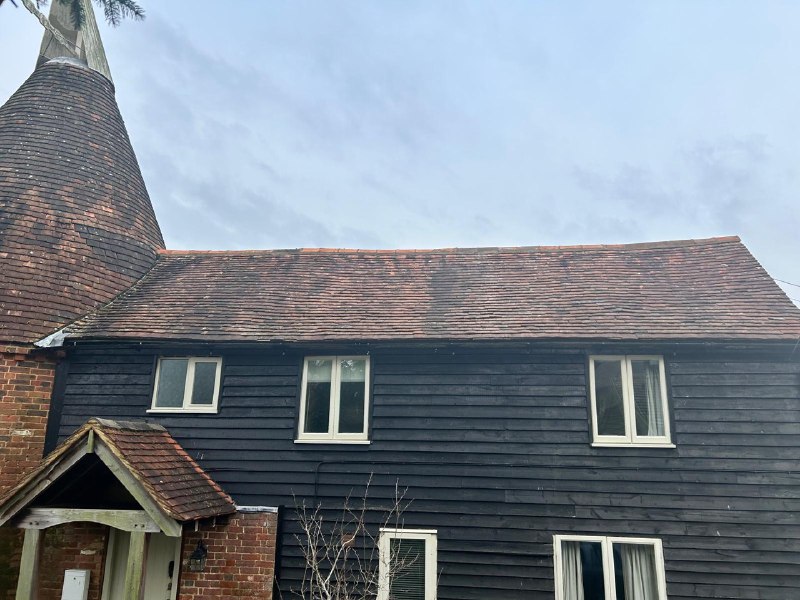Introduction: A seemingly harmless slipped tile on your roof can have far-reaching consequences, especially regarding water damage. Even minor displacement can pave the way for water infiltration, which can wreak havoc on your home’s interior. At Newark on Trent Roofing Repairs, we understand the importance of addressing slipped tiles promptly to prevent water damage. In this blog post, we’ll delve into how slipped tiles can lead to water damage and why it’s crucial to take action when they occur.
Compromised Waterproofing:
- Roof tiles are designed to protect against water intrusion, but this barrier is compromised when they slip out of place. Gaps between tiles allow water from rain, snow, or melting ice to seep into the underlying layers of the roof, including the underlayment, decking, and insulation. Over time, prolonged exposure to moisture can weaken these components and lead to water damage.
Leaks and Moisture Infiltration:
- Slipped tiles create entry points for water to penetrate the roof structure, leading to leaks and moisture infiltration. Water can travel through the smallest openings, finding its way into your attic, walls, ceilings, and insulation. Once inside, it can cause staining, rotting, and deterioration of building materials, compromising the structural integrity of your home.
Mould and Mildew Growth:
- Moisture from slipped tiles provides the ideal environment for mould and mildew growth. Mould spores thrive in damp, humid conditions, spreading rapidly and releasing allergens and toxins into the air. Mould infestations pose health risks to occupants and can cause extensive damage to building materials, requiring costly remediation and repairs.
Structural Damage:
- Prolonged exposure to water from slipped tiles can weaken the structural components of your roof and home. Moisture can cause wood rot, deterioration of insulation, and corrosion of metal fasteners, compromising the stability and safety of your property. In severe cases, water damage can lead to sagging ceilings, warped floors, and even structural collapse.
Electrical Hazards:
- Water infiltration from slipped tiles can pose electrical hazards, especially if it reaches electrical wiring or fixtures in your home. Moisture can corrode wires, cause short circuits, and increase the risk of electrical fires. It’s essential to address water damage promptly to mitigate the risk of electrical accidents and ensure the safety of your family and property.
Decreased Energy Efficiency:
- Water damage from slipped tiles can compromise your home’s insulation and thermal performance, leading to increased energy consumption and higher utility bills. Wet insulation loses effectiveness, allowing heat to escape in the winter and cold air to infiltrate in the summer. Addressing slipped tiles and water damage helps maintain energy efficiency and reduce heating and cooling costs.
Conclusion: Slipped tiles may seem like a minor issue, but they can have serious consequences regarding water damage. The risks associated with slipped tiles are significant, from leaks and mould growth to structural damage and electrical hazards. If you suspect you have slipped tiles on your roof, don’t wait – contact experts for a professional inspection and repair. Don’t let slipped tiles compromise the safety and security of your property – take action today.
Call us on: 01636 556 194
Click here to find out more about Newark on Trent Roofing Repairs
Click here to complete our contact form and see how we can help with your roofing needs.

